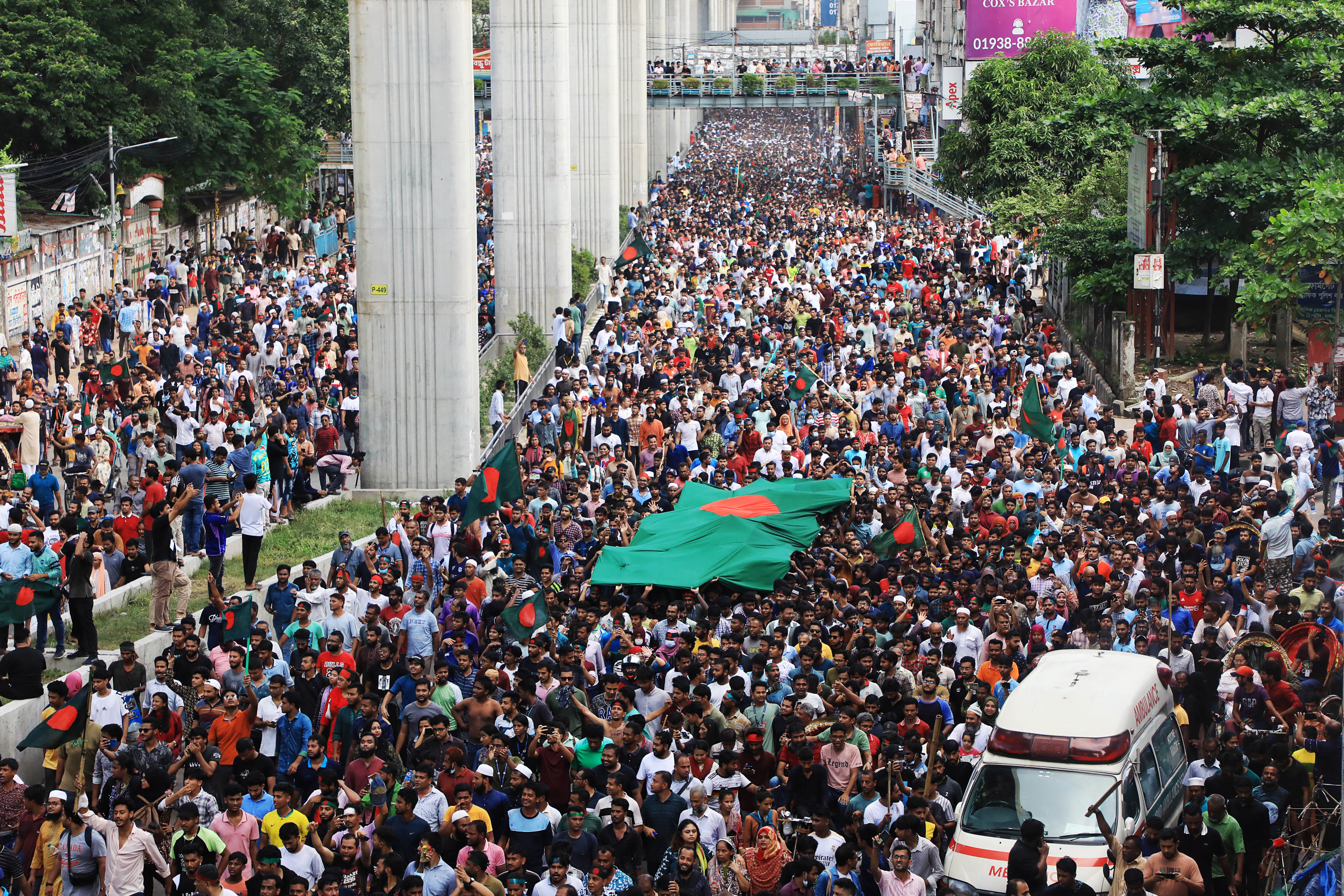The logical anatomy of July Declaration

On August 5, 2024, students and ordinary citizens ousted the authoritarian Awami regime after weeks of marches, blockades, and brutal crackdowns. The fall of Sheikh Hasina's government was not just the end of a chapter—it marked the beginning of a new one. One year later, on August 5, 2025, the July Declaration was read out by Chief Adviser Prof Muhammad Yunus at the South Plaza of the parliament. The declaration, coming as it does after a prolonged wait, should be seen as a foundational document for post-uprising Bangladesh. While public attention may focus on its symbolism and ambition, with analysts also scrutinising its content from historical and political perspectives, I think the logic underlying its formation also deserves attention.
The declaration is structured in a form familiar to students of law and logic alike. It follows a legal-deductive pattern of reasoning often used in charters and constitutions. This structure, commonly referred to as the "Whereas to Therefore" format, presents a sequence of premises leading to a normative conclusion. Each "Whereas" clause serves as a premise, and each "Therefore" clause functions as a conclusion. Philosophers often refer to this form as an enthymeme: a type of syllogism in which one or more premises are implied rather than explicitly stated. It assembles a set of empirical and normative claims that together justify a definitive conclusion. In this case, that conclusion is bold and unequivocal—the 2024 mass uprising must be constitutionally recognised.
At its core, the declaration rests on a deductive inference that can be summarised as follows: if a people rise up to overthrow a fascist regime in pursuit of justice and democracy, then their movement deserves constitutional recognition. And the people of Bangladesh did precisely that in 2024. Therefore, the 2024 mass uprising deserves constitutional recognition.
In other words, any movement that is both a protest against injustice and a legitimate expression of people's sovereignty deserves legal recognition. The mass uprising meets both conditions, so recognition follows.
In a valid deductive argument, if the premises are accepted, a conclusion must follow. Of course, one may challenge the premises. One could argue, for example, that the Awami regime was not entirely illegitimate per se, or that the uprising lacked nationwide support. The declaration anticipates such objections by offering a broad evidentiary base: that the scale of public participation, the intensity of state repression, and the erosion of electoral legitimacy all support its claims.
The declaration also draws strength from precedent, which is itself a form of reasoning. It situates the 2024 mass uprising within a lineage of historic moments when citizens reclaimed sovereignty from illegitimate regimes: the 1971 Liberation War, from which the constitution itself emerged and draws its legitimacy; the 1975 uprising that dismantled the BAKSAL system; and the 1990 movement that ended military autocracy. Each of these ruptures prompted a reimagining of the political order. By aligning 2024 with this tradition, the declaration makes an argument from analogy, invoking past expressions of popular legitimacy to justify the present. If 1971 was constitutionally enshrined, and if 1975 and 1990 were widely accepted as moments of popular sovereignty, then consistency demands that 2024 be treated with comparable seriousness and institutional commitment.
The document also articulates a practical necessity. Without a legal and constitutional recognition of the uprising, the goals that inspired it, such as justice, inclusivity, and accountability, cannot be institutionalised. Recognition is not a reward; it is a precondition for reform. This is a teleological argument grounded in instrumental reasoning. If the desired ends are democratic renewal and institutional change, then recognition is a necessary means to achieve them.
Another layer of reasoning is moral. The declaration puts forward an ethical claim about the state's obligation to honour the sacrifices made by its people. In the language of moral philosophy, this is a deontic argument, which concerns duties and obligations, rather than outcome or consequences. It defines what we ought to do, not just what is politically expedient. If the people acted to reclaim democracy, then democratic legitimacy demands that their action be recognised. The claim is not that recognition is a reward. It is that recognition is a moral requirement.
One final layer of reasoning may be the most powerful. According to speech act theory, when a political authority makes a formal declaration with legal force, the act of speaking brings about a change in reality. This is known as a performative or illocutionary act. The July Declaration operates in precisely this way. It does not merely describe recognition of the uprising; it enacts that recognition. As the declaration itself states, the student-people uprising will get proper state and constitutional recognition, and that the declaration will be included in the schedule of the reformed constitution by the next elected government. In saying this, it does not report a completed fact. It participates in bringing that fact into being. Like a court issuing a verdict, the act of declaring becomes part of the process that constitutes legal and political reality.
Marked by passion yet grounded in principle, the July Declaration weaves together deductive, analogical, instrumental, deontic, and performative reasoning, offering a rare example of political argument shaped by formal reasoning in Bangladesh's recent history. It presents a structured argument, employing multiple layers of reasoning to articulate its claims. Rather than functioning as a symbolic or emotional appeal, the declaration outlines a formal framework through which transitional demands, such as electoral reform, institutional accountability, and the rebuilding of democratic structures, are presented.
While Bangladesh has experienced political transitions driven by protests and upheavals since before its independence, it is relatively uncommon for such moments to be accompanied by a political text that attempts to discipline popular energy through formal argument. The July Declaration thus offers a useful case for examining how political reasoning operates under conditions of rupture. To evaluate the long-term significance of the mass uprising, one must consider not only its institutional consequences but also the intellectual architecture through which its demands are expressed.
Dr Kazi ASM Nurul Huda is associate professor of philosophy at the University of Dhaka. He can be reached at huda@du.ac.bd.
Views expressed in this article are the author's own.
Follow The Daily Star Opinion on Facebook for the latest opinions, commentaries and analyses by experts and professionals. To contribute your article or letter to The Daily Star Opinion, see our guidelines for submission.




 For all latest news, follow The Daily Star's Google News channel.
For all latest news, follow The Daily Star's Google News channel. 

Comments